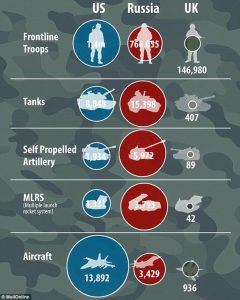(ThyBlackMan.com) To say the least, the Obama administration was not notable for respecting the “special relationship” that is supposed to subsist between the United States and Great Britain since they led the Allies to victory in World War II. This became a point of contention during the 2012 presidential election, when the elitist faction media generated an outsized furor over GOP nominee Mitt Romney’s frank remarks about British security preparations for the London Olympics. Given Obama’s record of plausibly premediated signals of disdain, those who saw the media tempest as clear proof of media bias had good reason to do so.
Donald Trump approves Great Britain’s decision to leave the EU. British Prime Minister Theresa May’s determination to bridle entry into Great Britain appears consonant with President Trump’s proclaimed commitment to policies that effectively bridle entry into the United States. As things stand, President Trump’s resolve in this matter puts him at odds with important EU leaders. So does his push to see to it that America’s partners in NATO shoulder more of the costs of the alliance.
It makes sense, therefore, to expect Donald Trump to reverse the careless, disdainful posture toward Great Britain the U.S. government took during Obama’s tenure. Careful reinvigoration of the “special relationship” will benefit both countries. Given candidate Trump’s expressed interest in moving U.S.-Russian relations away from their present perilously contentious course, a reinvigorated “special relationship” might set the stage for reinventing the alliance, improbable as it was at the time, that actually produced the Allied triumph over Hitler. As constitutional democracies, Great Britain and the United States nonetheless responded to the circumstantial imperative of forging a workable alliance with the totalitarian, communist dictatorship that ruled the Soviet Union.
Today, all three countries are formally committed to maintaining constitutional government. All three are more or less committed to private enterprise, as the main engine for economic growth. All three have significant Muslim populations and therefore face the task of assuring fair treatment for their law-abiding Muslim citizens, even as they effectively eliminate the existential threat of violent Islamic jihadist terrorism.
Just as the United States was the lynchpin of the improbable alliance that defeated the Nazi menace, President Trump’s declared aims should allow us to be the lynchpin of the alliance that defeats the menace of Islamic jihadist terrorism. At the moment however, U.S. relations with both these once (and future?) allies is under a shadow, emanating from the government sector replete with shadows. That sector is crucial to dealing with terrorist threats. In fact, it’s generally crucial to handling issues of international security. Both Russia and Great Britain now stand accused of interfering in the recent U.S. presidential election: the first to favor the election of Donald Trump, the second to help Obama discredit him.
What’s especially intriguing is that these accusations tend to undermine a) the American people’s trust and confidence in our government’s intelligence service; and b) the institutional trust and confidence vital to co-operation between the intelligence services of Great Britain and those of the United States. Instead of simply focusing on the media accounts of the punches and counter-punches these accusations are generating, Americans need to take a step back. We need to consider the crucial benefits we would derive from competently reforging the coalition that actually won the greatest war in human history. And with those benefits in mind, we need to consider the age-old question of motive, “Cui bono?”
Who benefits most from preventing this historically proven partnership from reinventing itself? Absent the accusation of British malfeasance, the effect of the remaining accusations undermines America’s trust in the impartiality of our intelligence services. But the implied substance of the revelations seems calculated to raise questions about the Trump administration’s motives for seeking to improve relations with the Russian government under Vladimir Putin. The latter questions may, at the very least, postpone any moves to improve relations with Russia. But the suspicion they generate may harden public feeling against Russia, souring relations.
Undermining trust in our intelligence services may, at the very least, give rise to a purge mentality, which could deprive us of seasoned veterans whose experience sustains concrete results vital to our intelligence-gathering capabilities. But it could also impel the U.S. Congress to curtail the activities and capabilities of our intelligence assets, despite the persistent threat from Islamic jihadist terrorist cells. Thanks to the Obama administration’s treacherously lax refugee and immigration policies, it’s likely that they are already in place on our territory.
This latter effect would make our historically intimate co-operation with Great Britain’s intelligence services more important than ever. The notion that British intelligence services helped Obama to spy on Donald Trump and his people, in violation of U.S. law, may poison the reservoirs of trust and goodwill at both ends of the conduits of information between the two governments. If purges of the U.S. intelligences services disrupt personal ties at both ends, that will complicate matters. Some things take time (which is to say the actual experiences time allows) to develop.
When we add the foregone opportunity costs of postponing or preventing the reinvention of U.S.-British-Russian co-operation to the operational of damaged trust and confidence between the U.S. and Great Britain, and between the American people and their intelligence services, the people who lose least and benefit most appear to be the ones who pose the most immediate threat to the people of the United States – the terrorism-minded Muslims bent on violent jihad.
Since the Congress of the United States is the branch that ought to be most concerned to safeguard the American people, members of Congress need to refresh their sense of obligation to our nation’s common good; then, they must let it guide their response to our intelligence crisis toward a positive goal, without rancor or partisanship, in order to do what we have to do to resolidify the basis for our trust in security services indispensable to our safety.
Written by Alan Keyes
Official website; http://loyaltoliberty.com




















Leave a Reply